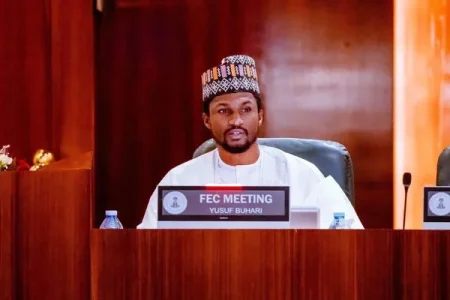
The Federal Government approves the prohibition of money rituals, ritual killings, and glamorization of vices in Nigerian films, skits, and music videos through new regulations to sanitize the entertainment industry.
The Federal Government has taken a significant step to regulate the content portrayed in Nigerian films, music videos, and skits. In a move aimed at promoting positive values and discouraging the glorification of vices, the National Film and Video Censors Board (NFVCB) has approved regulations prohibiting the depiction of money rituals, ritual killings, and the glamorization of other crimes in Nigerian entertainment productions. The announcement was made by Dr. Shaibu Husseini, the Executive Director/CEO of the National Film and Video Censors Board (NFVCB), during an event in Enugu on Wednesday, May 22, 2024.
According to Husseini, the decision was taken following consultations with the former Minister of Information, Alhaji Lai Muhammed, who recognized the need to address the concerning portrayal of harmful practices and criminal activities in Nigerian cinematography. The newly approved regulation, titled "Prohibition of Money Ritual, Ritual Killing, Tobacco, Tobacco Products, Nicotine Product Promotion and Glamorisation display in Movies, Musical Videos and Skits Regulations 2024," aims to sanitize the film industry and promote positive values.
The Executive Director emphasized that the regulation was approved by the Minister of Arts, Culture and the Creative Economy, Hannatu Musawa, under section 65 of the NFVCB Act 2004. The approved copy has been forwarded to the Federal Ministry of Justice for gazetting, indicating the government's commitment to enforcing the new guidelines.
The move has sparked mixed reactions among stakeholders in the entertainment industry and the general public. While some applaud the government's efforts to curb the negative influence of certain content, others argue that movies should reflect societal realities and that censorship may stifle artistic expression.
Nigerians argue that instead of outright bans, the government should focus on addressing the root causes of societal ills, such as poverty, lack of education, and inadequate law enforcement. They contend that films and other artistic works often serve as mirrors, reflecting the complexities and challenges faced by society.




